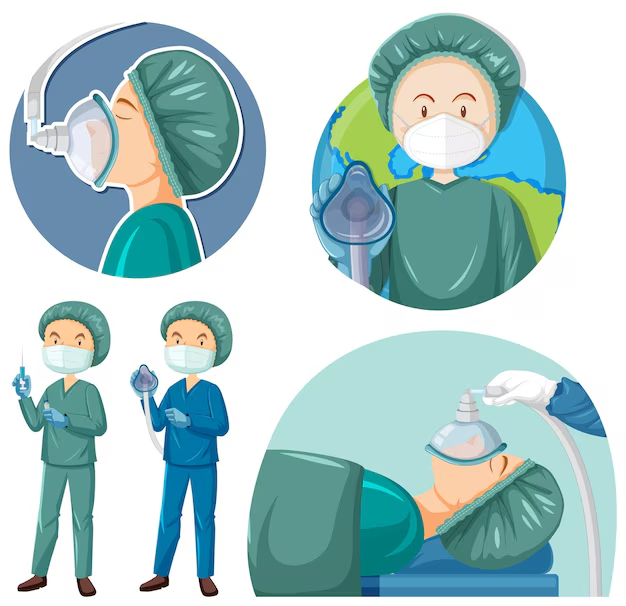Ph.D. in Anesthesia Technology: Introduction, Admission, Registration, Eligibility, Duration, Fees, Syllabus 2024

Introduction:
Embarking on a journey to earn a Ph.D. in Anesthesia Technology opens doors to a world of innovation, patient care, and advanced medical technology. Anesthesia technology plays a crucial role in ensuring patient safety and comfort during surgical procedures, making it a dynamic and rewarding field for those passionate about healthcare and technology. In this comprehensive guide, we'll navigate through the admission process, eligibility criteria, completion time, career opportunities, syllabus, internship opportunities, scholarships, and grants for prospective candidates.
Admission Process:
- Research Programs: Explore universities offering Ph.D. programs in Anesthesia Technology. Consider factors such as faculty expertise, research facilities, and program accreditation.
- Application Submission: Complete application requirements including transcripts, letters of recommendation, statement of purpose, and relevant test scores (if applicable).
- Interviews: Shortlisted candidates may be invited for interviews to discuss their research interests, academic background, and career goals.
Eligibility:
- Educational Background: A master's degree in Anesthesia Technology, Biomedical Engineering, Health Sciences, or a related field is typically required.
- GPA Requirement: Most programs have a minimum GPA requirement, usually around 3.0 on a 4.0 scale.
- Experience: Some programs may prefer candidates with relevant work experience in anesthesia technology or healthcare settings.
Completion Time:
The completion time for a Ph.D. in Anesthesia Technology varies depending on factors such as program structure, dissertation research, and individual progress. On average, it takes around 4 to 6 years to complete the degree.
Career Opportunities:
- Clinical Practice: Ph.D. graduates can work as Certified Anesthesia Technologists (CATs) in hospitals, surgical centers, and other healthcare facilities, assisting anesthesiologists in administering anesthesia and monitoring patients during surgery.
- Research and Development: Opportunities exist in research institutions, medical device companies, and pharmaceutical companies, where Ph.D. graduates can conduct research to improve anesthesia techniques, develop new medical technologies, and enhance patient care.
- Education: Ph.D. graduates may pursue careers as educators and instructors in academic institutions, training future generations of anesthesia technologists and healthcare professionals.
- Management and Administration: Graduates with leadership skills and business acumen may explore roles in healthcare administration, hospital management, or consulting.
- Public Health: Ph.D. graduates can contribute to public health initiatives, policy development, and advocacy efforts related to anesthesia safety and healthcare quality.
Syllabus:
- Advanced Anesthesia Techniques: Courses covering advanced principles and techniques of anesthesia administration, including pharmacology, physiology, and patient assessment.
- Research Methods: Training in research methodologies, statistical analysis, and literature review to prepare students for dissertation research.
- Advanced Medical Technology: Study of advanced medical devices and technologies used in anesthesia delivery, patient monitoring, and critical care.
- Professional Development: Courses focusing on professional ethics, communication skills, leadership, and interprofessional collaboration.
- Dissertation Research: Independent research under the guidance of a faculty advisor, culminating in the writing and defense of a dissertation on a topic of the student's choice.
Internship Opportunities:
- Clinical Internships: Hands-on clinical experience in anesthesia departments of hospitals or surgical centers, working alongside certified anesthesia technologists and anesthesiologists.
- Research Internships: Opportunities to participate in research projects at academic institutions, medical device companies, or research laboratories, gaining experience in data collection, analysis, and presentation.
- Industry Internships: Internships with medical device companies or pharmaceutical companies, focusing on product development, testing, and regulatory compliance.
Scholarships and Grants:
- Institutional Funding: Many universities offer funding packages to Ph.D. students, including tuition waivers, stipends, and health insurance.
- Professional Associations: Professional organizations such as the American Society of Anesthesia Technologists and Technicians (ASATT) may offer scholarships or grants to support students pursuing advanced education in anesthesia technology.
- Research Grants: Ph.D. students may have opportunities to apply for research grants from government agencies, private foundations, or industry sponsors to support their dissertation research.
FAQs:
Can I pursue a Ph.D. in Anesthesia Technology with a background in a different field?
Yes, candidates with backgrounds in biomedical engineering, health sciences, nursing, or related fields may be eligible for admission, although some prerequisite coursework may be required.
What types of research topics can I explore in a Ph.D. program in Anesthesia Technology?
Research topics may include advancements in anesthesia delivery systems, patient monitoring technologies, pharmacological interventions, patient safety initiatives, and healthcare quality improvement.
Are there opportunities for international students in Ph.D. programs in Anesthesia Technology?
Yes, many programs welcome international students and offer support services such as English language instruction and cultural orientation.
Can I work while pursuing a Ph.D. in Anesthesia Technology?
Some Ph.D. students may work part-time as anesthesia technologists or in related healthcare roles, although the workload can be demanding. Many programs offer teaching or research assistantships to support students financially.
How can I stay updated on advancements in anesthesia technology during my Ph.D. studies?
Students can stay updated by attending conferences, workshops, and seminars in anesthesia technology, subscribing to academic journals and publications, and actively engaging with professional organizations and online forums.
